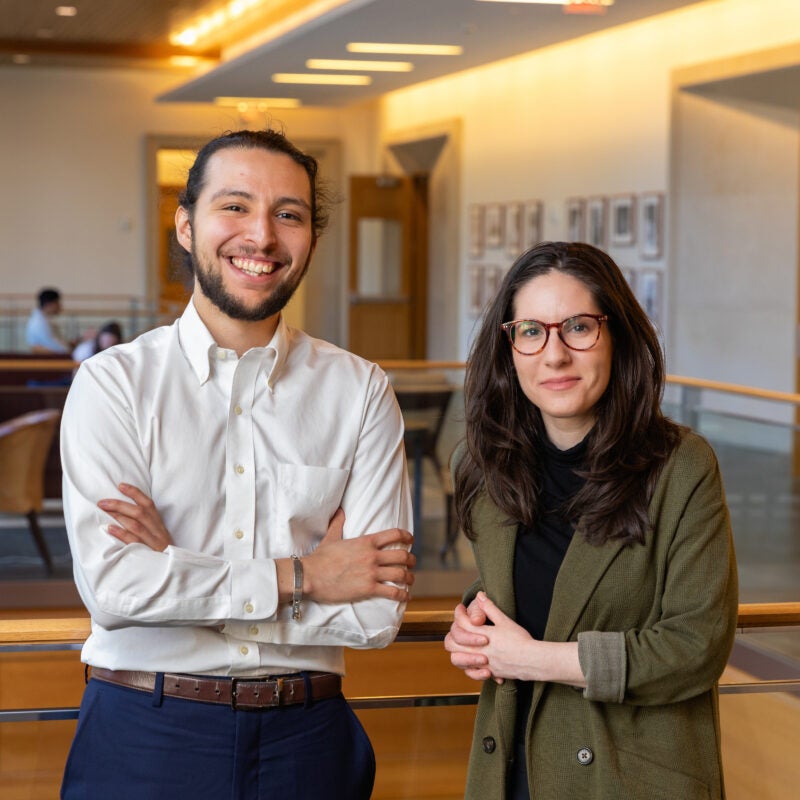
Immigration clinic students receive Skadden Fellowships
April 25, 2024
Harvard Immigration and Refugee Clinical Program students Julio Colby '24 and Sara Kamouni '24 have been selected as recipients of the Skadden Fellowship.
Clinic Stories News, stories, and updates from the world of clinical and pro bono work at HLS
Contact Office of Clinical and Pro Bono Programs
Website:
hls.harvard.edu/clinics
Email:
clinical@law.harvard.edu
April 25, 2024
Harvard Immigration and Refugee Clinical Program students Julio Colby '24 and Sara Kamouni '24 have been selected as recipients of the Skadden Fellowship.